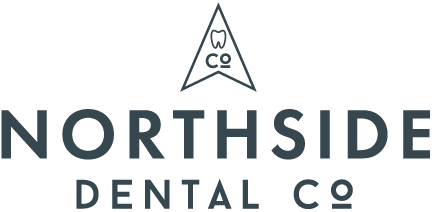If you suffer from bruxism (clenching or grinding of your teeth), an occlusal guard may be what you need to alleviate this grinding and prevent any long-term damage.
Tooth grinding is a common occurrence with nearly 8% of the general population (32 million Americans) suffering from it. It’s often an unconscious habit done during the daytime, nighttime, or both. And though bruxism doesn’t always have immediate consequences, some long-term issues can arise if you don’t deal with it.
Fortunately, contacting your dentist and getting an occlusal splint can help reduce bruxism’s signs, symptoms, and long-term effects.
In this article, we’re providing professional insight into bruxism and dental splints. In addition, you’ll get answers to questions like, “What is an occlusal guard?” and “Are there any nightguard alternatives?”
Continue reading to better understand occlusal guards for bruxism and if you need to look into one today.
Note: Technically, occlusal guards and dental splints are two separate tools. However, in this article, we’ll use the term “guard” and “splint” interchangeably to mean any material placed in your mouth to treat bruxism and its symptoms.
4 Questions About Bruxism and Occlusal Guards
Here are four questions and answers regarding nighttime grinding to help shed light on what bruxism is and how an occlusal nightguard can help.
1. What Is Bruxism?
Bruxism is the dental term for clenching or grinding teeth.
Often, people who clench or grind their teeth do it unconsciously. Bruxism is most common at night during sleep, but some people also do it during daytime hours.
There isn’t a “cure” for bruxism, but there are ways to prevent and lessen its effects. And since it can cause long-term oral and jaw problems, it’s best to contact a dentist and get it treated as soon as possible.
Let’s take a minute to look at the major symptoms and causes of bruxism.
Bruxism Symptoms
Those who deal with bruxism may not immediately know they have it. Bruxism symptoms can take months or years to develop before becoming apparent.
Some of the most common bruxism symptoms include:
- Worn down or cracked teeth
- Worn down enamel
- Tooth pain or increased sensitivity
- Jaw pain or discomfort
- Ear pain
- Dull, chronic headache
If you grind your teeth, developing one or a few of these symptoms is not uncommon.
Bruxism Causes and Risk Factors
The exact cause of teeth clenching isn’t known.
Dental and medical experts believe that emotions like stress, anxiety, anger, and frustration are the most likely culprits. It may also develop as a coping strategy or habit during periods of deep concentration.
There are also some groups of people that are at higher risk of bruxism than others, including:
- Young children
- Those experiencing high levels of stress
- Individuals with an aggressive, competitive, or hyperactive personality
- Those with family members who suffer from bruxism
Simply being in one of these high-risk groups doesn’t mean you have bruxism. However, if you do fit into one of these groups and have any of the symptoms mentioned above, you may want to consult your dentist.
Schedule Your Occlusal Guard Consultation
2. What Are the Long-term Consequences of Bruxism?
For some, a light headache or jaw pain may not seem like a big deal. But leaving bruxism unaddressed can lead to more serious oral and jaw issues.
Two major problems that can arise from prolonged, untreated bruxism are:
- Temporomandibular joint (TMJ) disorder
- Worn down or cracked teeth
Here’s a quick look at these two issues in more detail.
TMJ Disorder
TMJ disorder (also called TMJ dysfunction) occurs when the joint that connects your jaw becomes irritated. Irritation to this joint can cause:
- Severe jaw pain and discomfort
- Inability to open or close your jaw
- Difficulty chewing or speaking
- Headaches and earaches
- Pain in your neck or shoulders
TMJ disorder rarely goes away on its own and often requires treatment.
Worn Down or Cracked Teeth
The extra, prolonged pressure put on your teeth from grinding can cause damage to your teeth. Tooth damager from grinding most often includes:
- Worn down teeth, especially molars
- Broken or cracked teeth
- Loss of tooth enamel
Each of these issues can lead to severe pain and increased sensitivity in the affected area. They’ll also require that you receive expensive dental work to repair the damages.
Now that you know more about bruxism and its long-term effects, let’s look at how to keep from grinding your teeth.
3. What Is an Occlusal Guard for Bruxism?
We mentioned earlier that there’s no cure for bruxism. However, there is a way to prevent it and alleviate the discomforts associated with it.
The answer? An occlusal guard.
An occlusal guard is a mouthguard-like piece of material placed in your mouth to create a barrier between your top and bottom teeth. These dental splints keep teeth from grinding against each other, therefore relieving the symptoms associated with bruxism (including TMJ disorder!).
Other common names for occlusal guards include:
- Mouth splint
- Occlusal splint
- Dental splint
- Occlusal nightguard
- Mouthguard
- Bite guard
If you deal with bruxism and want to get an occlusal guard, there are two ways to get one:
- Over the counter
- Custom made from your dentist
Over-the-counter vs. Custom-made Mouth Splint
Over-the-counter and in-store occlusal guard options do exist, and many companies offer “custom” online options.
Some of these options may be cheaper than a custom-made mouth splint from your dentist. And, they could provide the relief that you need from nighttime grinding.
However, there’s more to an occlusal guard for bruxism than something that fits in your mouth between your teeth. You also need to consider your jaw alignment and unique bite. Otherwise, your dental splint may cause more harm and require additional treatments or procedures to fix the issues.
Having your dentist make you a personalized occlusal guard is the best way to ensure that your guard:
- Fits properly
- Is tailored to your bite
- Won’t cause additional long-term damage
A custom-made occlusal guard for bruxism usually costs around $650, depending on what your insurance covers. However, the cost will be well worth it when you have relief from bruxism symptoms and don’t further damage your teeth or jaw.
Schedule Your Occlusal Guard Consultation
4. Are There Any Nightguard Alternatives?
If you don’t want to wear an occlusal nightguard, there are some nightguard alternatives:
- Taking Medications: Antidepressants and other medications can provide some relief from bruxism. However, there’s always the risk of medication side effects and a growing dependence on the drug. In addition, many dentists and medical professionals agree that medications aren’t a long-term solution for bruxism.
- Talking to a specialist: If you don’t want to wear a nightguard, your dentist may connect you with a TMJ specialist or surgeon. Their recommendations may include Botox injections or surgery, depending on your condition.
- Practicing Stress Relief: Another option is to incorporate stress-relieving activities into your daily routine. These activities could be things like breathing exercises, yoga, or stress therapy. You’ll need to be intentional about setting aside time to put these activities into practice daily.
Dentists also suggest watching your caffeine intake and avoiding too much stimulation before bed, as both can contribute to bruxism.
Before starting an alternative approach (especially medications), it’s best to talk with your dentist. They can walk you through the different options and work with you to create a good plan of action.
The Best Place in Richmond, VA for Dental Splints
Bruxism is a condition where people clench or grind their teeth. It’s usually an unconscious habit that happens during the daytime or nighttime hours.
Dental and medical experts aren’t sure what causes bruxism, but stress is at the top of the list. There are also certain groups of people at higher risk, like young children and those with a family history of bruxism.
Teeth grinding can lead to a host of symptoms and long-term mouth and jaw issues, so it’s best to contact your dentist if you recognize some of its signs.
Getting an occlusal guard for bruxism is the best way to prevent nighttime grinding and alleviate its symptoms. There are over-the-counter mouth splints you can purchase. However, having your dentist make you a personalized dental splint ensures your guard fits your mouth, jaw, and bite properly.
Are you in need of some expert advice on bruxism or occlusal guards?
At Northside Dental Co, we’re ready and equipped to help you overcome nighttime grinding. Whether you’ve recently realized you suffer from bruxism or you’ve been struggling with it for years, our dentists can help. They’ll talk with you, evaluate your situation, and provide you with a personalized treatment plan.

